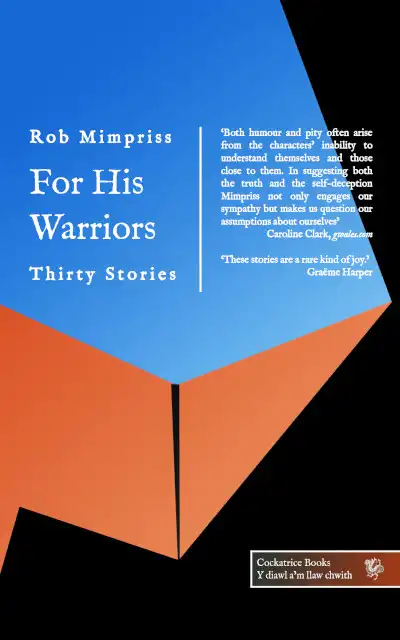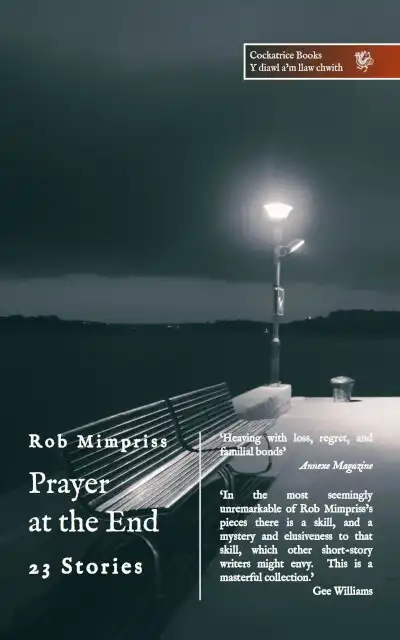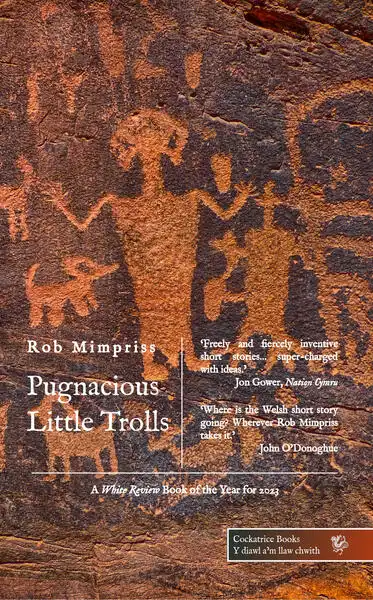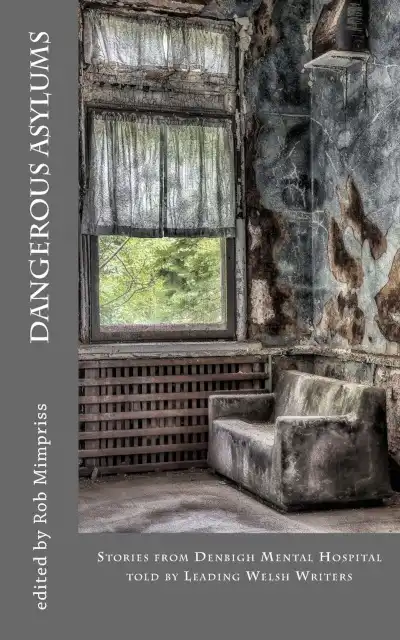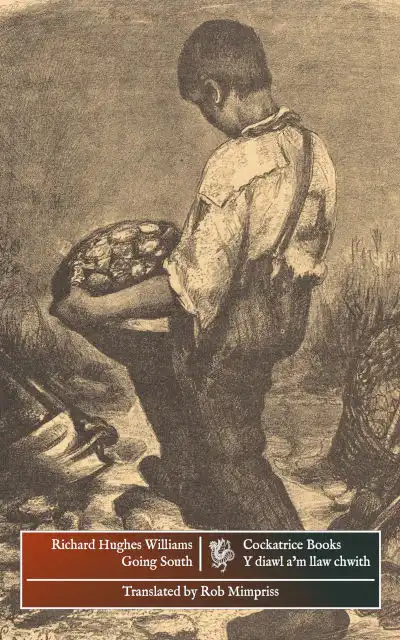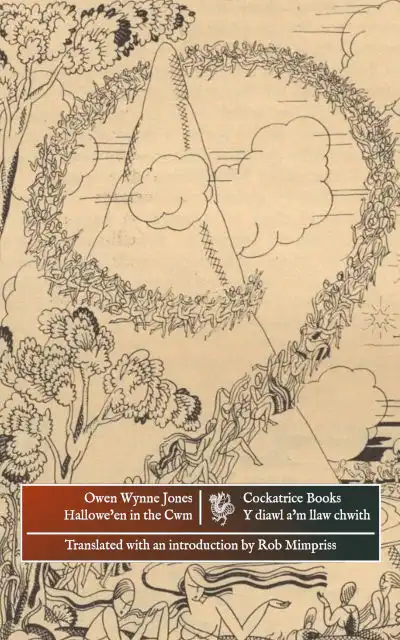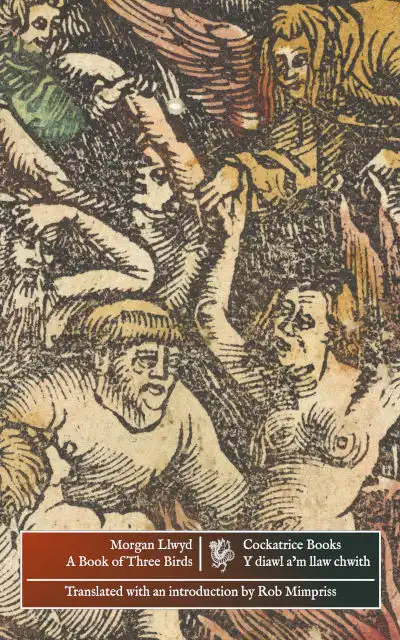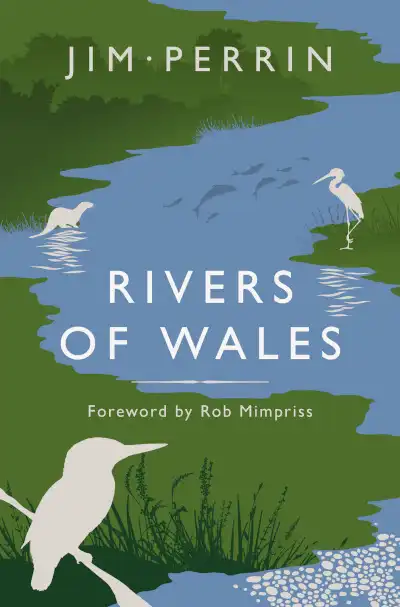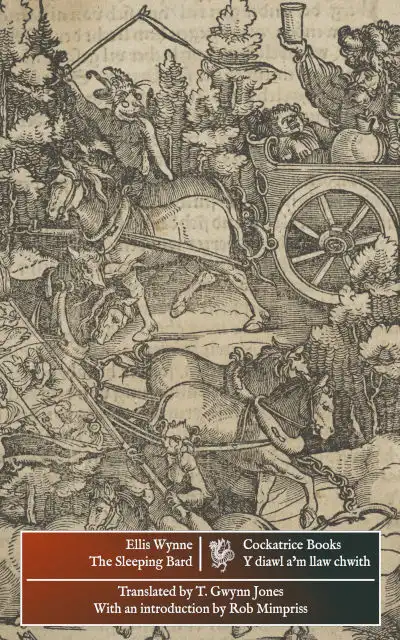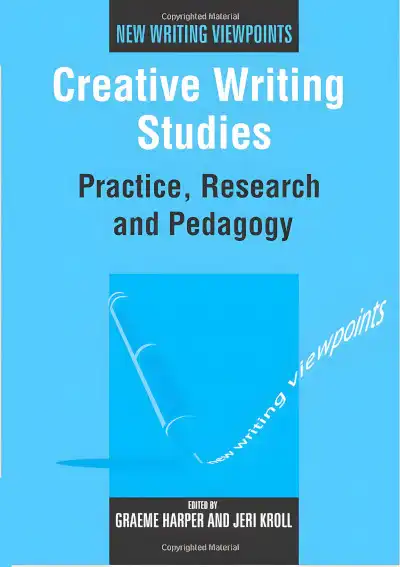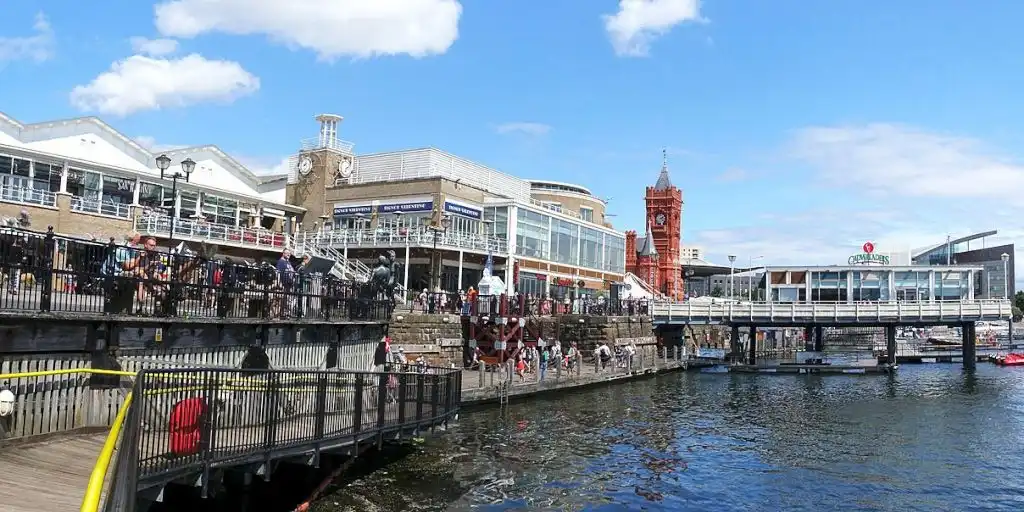Image of Jack the Giant-Killer from Cardiff Castle | Source
(Pembrokeshire, T J J. The resemblance to Irish tales will be observed.)
There were three brothers, let us call them Wil, Siôn and Dai. They owned a farm which they worked together. One day, Wil was ploughing, and he struck one of the oxen a chance blow which killed him. Wil took the other ox home and told Siôn and Dai what had happened. They would not believe that it had been a mishap. Wil was bound with ropes, put into a sack and thrown into the sea at night. The others believed him to have been drowned, but Wil escapes, skins the dead ox unknown to his brothers and goes away. Coming to a town, he sells the hide, but is at a loss to know how to earn his living. He catches a wounded bird, which he tends until it is cured. He then hides some of the money he had got for the hide here and there outside the town, and then goes in. As his clothes are very ragged and as he carries the bird with great care, people take him for an idiot and start to question him.
‘Where art thou taking the bird?’ asks one.
‘Along with me,’ answers Wil.
‘What dost thou with it?’
‘I shall not tell thee.’
Many a question they asked him, getting only the same replies, but at last he tells one of them, by the way, as it were, that the bird could find money. This is told to the others at once. Someone asks the price of the bird. Wil says it is not for sale.
‘I’ll give thee a pound for it,’ says one.
‘I can find a pound a day with this bird,’ says Wil.
‘Thou art a liar!’
‘Very well, believe me or not, I don’t care which.’
By this time there was a crowd, and at last Wil offers to put the bird to a test. He takes care to go towards the spot where he had hidden the money. He places the bird near the hedge, saying it would cry out should there be hidden treasure anywhere near. The bird does not cry. The test is repeated, still the bird does not cry. Then coming to a spot where he had hidden money, Wil squeezes the bird, causing it to cry out. The money is found, and this is done several times, so that everybody wants to buy the bird, Wil refusing to name his price. At last, a bargain is struck and the bird is sold for a hundred pounds to an old miser.
Wil departs and comes to another town, where he buys a drove of sheep, with which he returns home. Believing him to have been drowned, his brothers are at first taken with fear, but at last they begin to question him.
‘Where didst thou get the sheep?’ asks Dai.
‘At the bottom of the sea,’ answers Wil, ‘and had I anyone to help me, I should have had many more – it is not easy to catch them down there.’
‘Where are they down there?’
‘O, just as they are up here, grazing where the grass is best, and that is always where the water is deepest. If you like, I’ll show you the best places.’
The three go to the sea. Standing close to the edge, above the deep water, Wil points to the place. Siôn leaps at once. Wil and Dai hear the gurgle of the water in his throat as he goes out of sight.
‘What is that noise?’ asks Dai.
‘He is taking the best sheep, jump in at once!’ cries Wil.
Dai takes the leap. Wil takes the whole farm.

